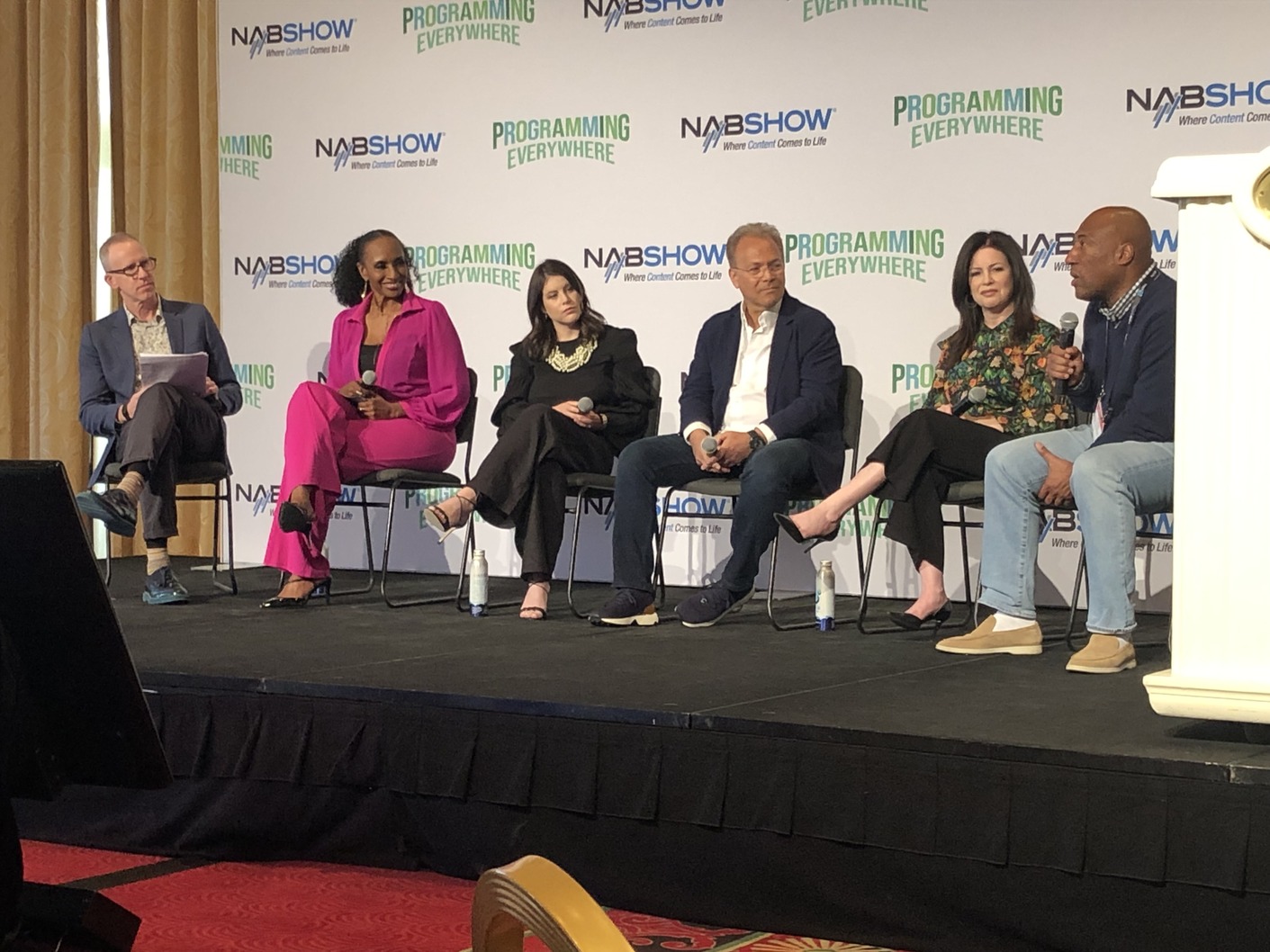Future of Talk Shows Takes Center Stage (NAB Show)
Byron Allen, Portia Bruner, Ira Bernstein, others discuss what works, what doesn’t in talk

The smarter way to stay on top of broadcasting and cable industry. Sign up below
You are now subscribed
Your newsletter sign-up was successful
The NAB session “Building the Next Gen Talk Show” went down April 14 at the Encore in Las Vegas. The panel started with a look at the future of shows hosted by big-name talent. Byron Allen, chairman, CEO and president, Allen Media Group and Entertainment Studios, noted how uncommon standout talent is, citing Oprah Winfrey, and a star from the sports world.
“The Bulls still haven’t replaced Michael Jordan,” he said.
Allen is not a big believer in the single-host format. “I’m not saying it’s not possible,” he said, but it needs that megawatt talent to fly.
Keeping costs from getting sky high is key to such a show working, the panelists said. “The secret is making it affordable for the stations,” said Ira Bernstein, co-president, Debmar Mercury, “and making it so they can make money.”
Portia Bruner, host of talk show Portia, which launched on WAGA Atlanta and airs on Fox Soul, said a lean staff sets the right tone for her program. “We hear guests say, it felt like I was hanging out with family,” she shared.
One theme of the panel was making a show pop on the various platforms available. Jenny Depper, senior VP, E! News, spoke of the digital efforts for The Kelly Clarkson Show launching at the same time as the show. “We capture audiences where they are,” she said. “We custom-create content for every single platform that the show exists on.”
The panel discussed a clip for Winfrey’s interview with Prince Harry and Meghan Markle that ran on TikTok. It saw Harry say some shocking things, which worked well on that particular platform.
The smarter way to stay on top of broadcasting and cable industry. Sign up below
Lauren Blincoe, senior VP, current programming, Telepictures, Warner Bros. Television, said digital clips are more than just promotion for the show, but can’t give too much away. “We have to be sensitive to our station partners,” said Blincoe, who works on The Jennifer Hudson Show. “You’re gonna get a little bit, but you still have to watch the show to get all of it.”
Bruner said the key to Portia finding its legs outside Atlanta was focusing on issues that are universal. “Building a community, building a connection and making sure people feel heard,” Bruner said of her gameplan.
That segued into what a successful host brings to a show. Allen mentioned the importance of “being very naturally curious.” He spoke of interacting with Johnny Carson as a kid when his mother worked at NBC. Carson stressed letting the guest have their moments. “Pull back and make him shine,” Allen said Carson told him.
Depper cited the importance of relatability, noting how that’s been key to Travis and Jason Kelce finding success with their podcast.
Michael Depp, chief content officer and editor, NewsCheckMedia, TVNewsCheck, moderated. He asked about how a daytime show’s tone may differ from another airing after dark. Depper said the 24/7 platforms that content pops up on can take the daypart out of the equation. “A clip that does well on Jimmy Fallon’s show, the next morning is all everyone’s talking about at the water cooler,” she said. “Tonally, it’s edgier at night, but it’s still relevant at 9 a.m. the next morning.”
The session detailed the risks involved with a station group backing a daytime show. Panelists said groups should still take some swings. Said Bernstein, “The groups that have taken chances and invested in programming, over time, have done better.”
Michael Malone is content director at B+C and Multichannel News. He joined B+C in 2005 and has covered network programming, including entertainment, news and sports on broadcast, cable and streaming; and local broadcast television, including writing the "Local News Close-Up" market profiles. He also hosted the podcasts "Busted Pilot" and "Series Business." His journalism has also appeared in The New York Times, The L.A. Times, The Boston Globe and New York magazine.

